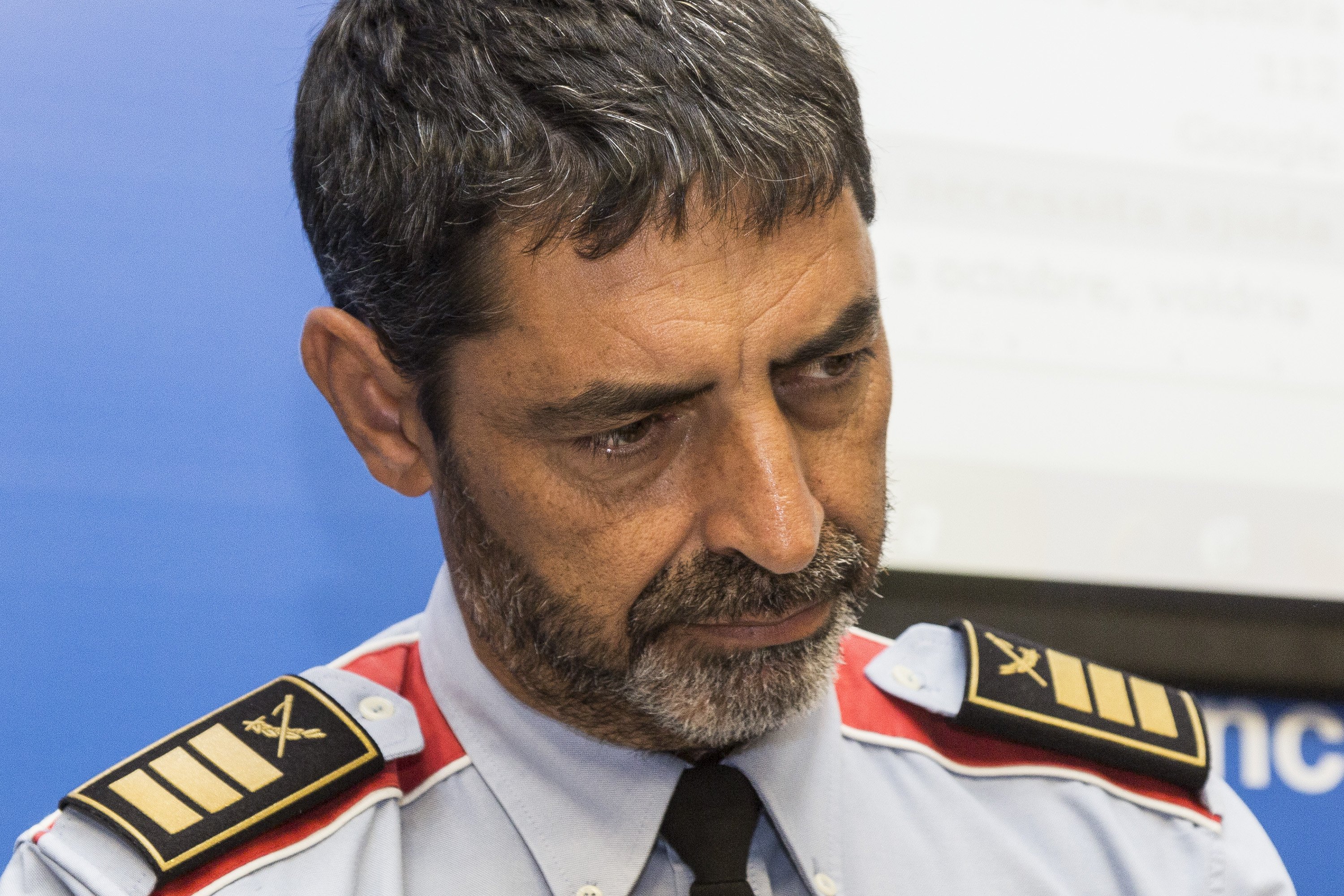A two-and-a-half-hour meeting of the top hierarchy of Catalonia's Mossos d'Esquadra police to ensure a common approach to the possible overspill of politics into their sphere. The ongoing debate on the most appropriate model of law and order, the police force's actions during the current protests over the imprisonment of Pablo Hasél and the general fatigue of the body, which has harboured a level of indignation since the 2017 referendum, have now been augmented by a fourth factor: Catalonia is currently in the midst of political negotiations for the formation of a new government, and even as they act, the police themselves have become an issue.
The police corps is at the limit, and it wants to protect itself and its work. Today's meeting called by reinstated police chief, Josep Lluís Trapero, brought together the key unit commanders of the body with senior administrators to close ranks before the tasks they are facing, according to sources close to the meeting. There was a "strongly united" atmosphere, they said. The senior leaders conveyed their support to riot police, they defended and endorsed the action of the public order units on the street in the last few days, BRIMO and ARRO riot forces, and commended the work they are doing throughout the territory. None of them doubted it: this time the problem is not inside the body. It's outside.
Chief Trapero opened up the meeting for commanders to speak. As many as 15 police leaders raised their hands and gave their views, some about the need for the top leadership to be closer to the ground, closer to the side of the officers, to give the front-line police support which they feel they are not receiving from the police's political leadership at present.
Disconnecting from politicians
The leaders want to protect the body from the political noise. "They mustn't affect us," say sources close to the meeting, making clear references to the negotiations underway for the formation of the Catalan government, which seem to be putting the Mossos and law and order issues at the centre of the debate on the government agreement they want to reach. And in this sense of protecting themselves from political interference, the commanders argue that if foam projectiles need to be used, they will make a case for it and ask for authorization.
There are the demands of the left-wing CUP party, calling for the BRIMO squad to be disbanded; there is the fact that Pere Aragonés has already suggested that centre-right Junts will no longer control the Catalan interior ministry, responsible for the police. Then there was yesterday's statement from Junts taking for granted that the woman who lost an eye on Tuesday was the result of actions of the Mossos; and the broader pressure for reforms of the model used fro4 maintaining law and order. All of these elements have strained the body.
During the Mossos' meeting, this debate on the public order model was also addressed, and there was agreement that such a model must be debated in Parliament, in the Catalan government and in society at large. Sources in the interior ministry have told ElNacional.cat that it is clear that a reform of the model is needed, because society has changed and the level and motives of street protests, too.
The operational leadership of the Mossos d'Esquadra, with chief Trapero at its head, ended closed the meeting revalidating their spirit of service to society, as always.

